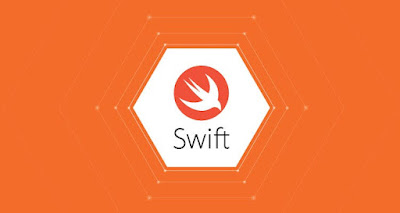Introduction to Swift Programming
Swift is a powerful and intuitive programming language for macOS, iOS, watchOS, and tvOS. It is designed to work with Apple's Cocoa and Cocoa Touch frameworks and is intended to be more resilient to erroneous code.
Basics
Hello, World!
Variables and Constants
- Variables are declared using
varand can be changed. - Constants are declared using
letand cannot be changed.
Data Types
Swift supports various data types including Int, Float, Double, Bool, String, Array, and Dictionary.
Type Inference
Swift infers the type of variables and constants if the type is not explicitly specified.
Control Flow
If-Else Statements
Loops
- For-in Loop
Functions
Defining and Calling Functions
Closures
Closures are self-contained blocks of functionality that can be passed around and used in your code.
Object-Oriented Programming
Classes and Structures
- Class: Reference type
- Structure: Value type
Enumerations
Enumerations define a common type for a group of related values and enable you to work with those values in a type-safe way.
Optionals
Optionals are used to handle the absence of a value.
Unwrapping Optionals
- Forced Unwrapping
- Optional Binding
- Nil Coalescing
Error Handling
Swift provides error handling to manage unexpected conditions.
Throwing and Catching Errors
Conclusion
Swift is a robust language that supports a variety of programming paradigms, including object-oriented and functional programming. This guide covers the basics, but Swift has many more features and capabilities to explore. Happy coding!
Advanced Swift Concepts
Advanced Functions
Function Types
Functions in Swift are first-class citizens, which means they can be assigned to variables, passed as arguments, and returned from other functions.
- Functions as Parameters
- Functions as Return Types
Generics
Generics allow you to write flexible and reusable functions and types that can work with any type.
Extensions
Extensions add new functionality to an existing class, structure, enumeration, or protocol.
extension Int { func squared() -> Int { return self * self } } print(5.squared()) // 25
Protocols
Protocols define a blueprint of methods, properties, and other requirements for particular tasks or functionality.
protocol Greetable { var name: String { get } func greet() -> String } class Friend: Greetable { var name: String init(name: String) { self.name = name } func greet() -> String { return "Hello, \(name)!" } } let friend = Friend(name: "John") print(friend.greet()) // Hello, John!
Protocol Extensions
Protocol extensions provide default implementations of methods and properties to conforming types.
Error Handling
Defining Errors
You can define custom errors by conforming to the Error protocol.
Propagating Errors Using throws
Functions and methods can propagate errors by marking them with the throws keyword.
Handling Errors Using do-catch
You can handle errors using a do-catch block.
Advanced Types
Type Aliases
Type aliases define an alternative name for an existing type.
Nested Types
Types can be nested within other types.
struct Car { struct Engine { var horsepower: Int } var engine: Engine } let carEngine = Car.Engine(horsepower: 200) print(carEngine.horsepower) // 200
Memory Management
Automatic Reference Counting (ARC)
Swift uses ARC to manage the memory of class instances.
Strong, Weak, and Unowned References
- Strong references keep a firm hold on the referenced object.
- Weak references do not keep a firm hold on the referenced object and are used to avoid strong reference cycles.
- Unowned references assume the referenced object always has a value during its lifetime.
Concurrency
Grand Central Dispatch (GCD)
GCD is a low-level API for managing concurrent code execution on multicore hardware.
Swift Concurrency with async/await (Introduced in Swift 5.5)
The async and await keywords simplify asynchronous programming.
func fetchData() async -> String { // Simulate network delay try? await Task.sleep(nanoseconds: 1_000_000_000) return "Fetched Data" } Task { let data = await fetchData() print(data) }
Conclusion
Swift is a versatile language designed for performance and safety. From basic syntax to advanced features like generics, protocols, and concurrency, Swift provides powerful tools to build robust applications. Keep exploring and practicing to master Swift!




.jpeg)

.png)
.png)


